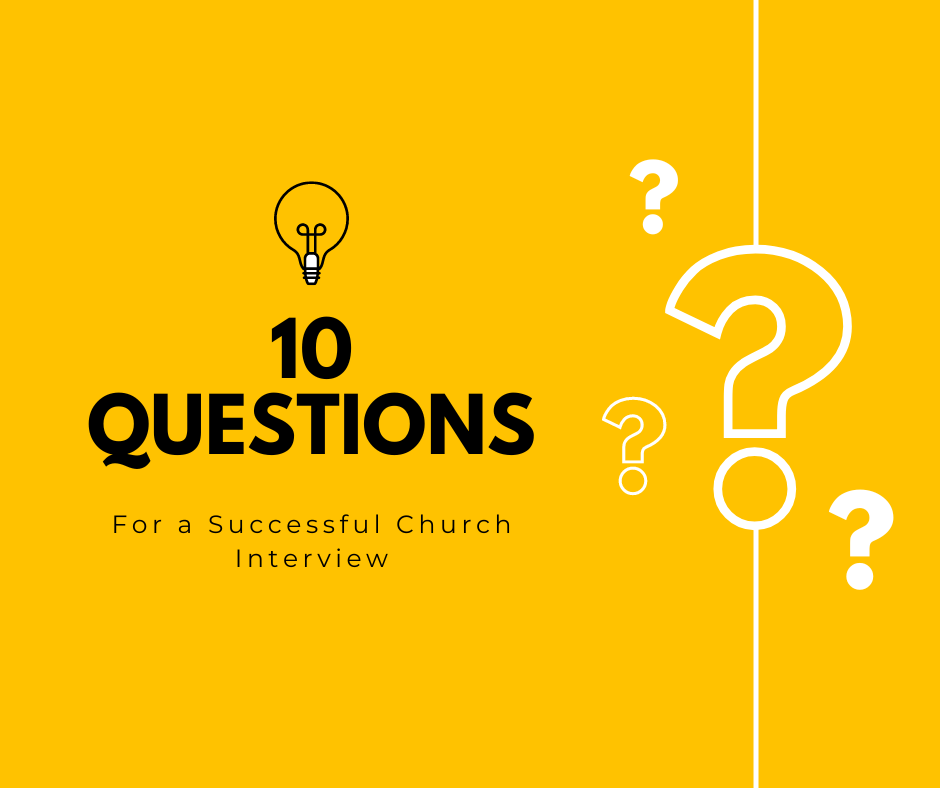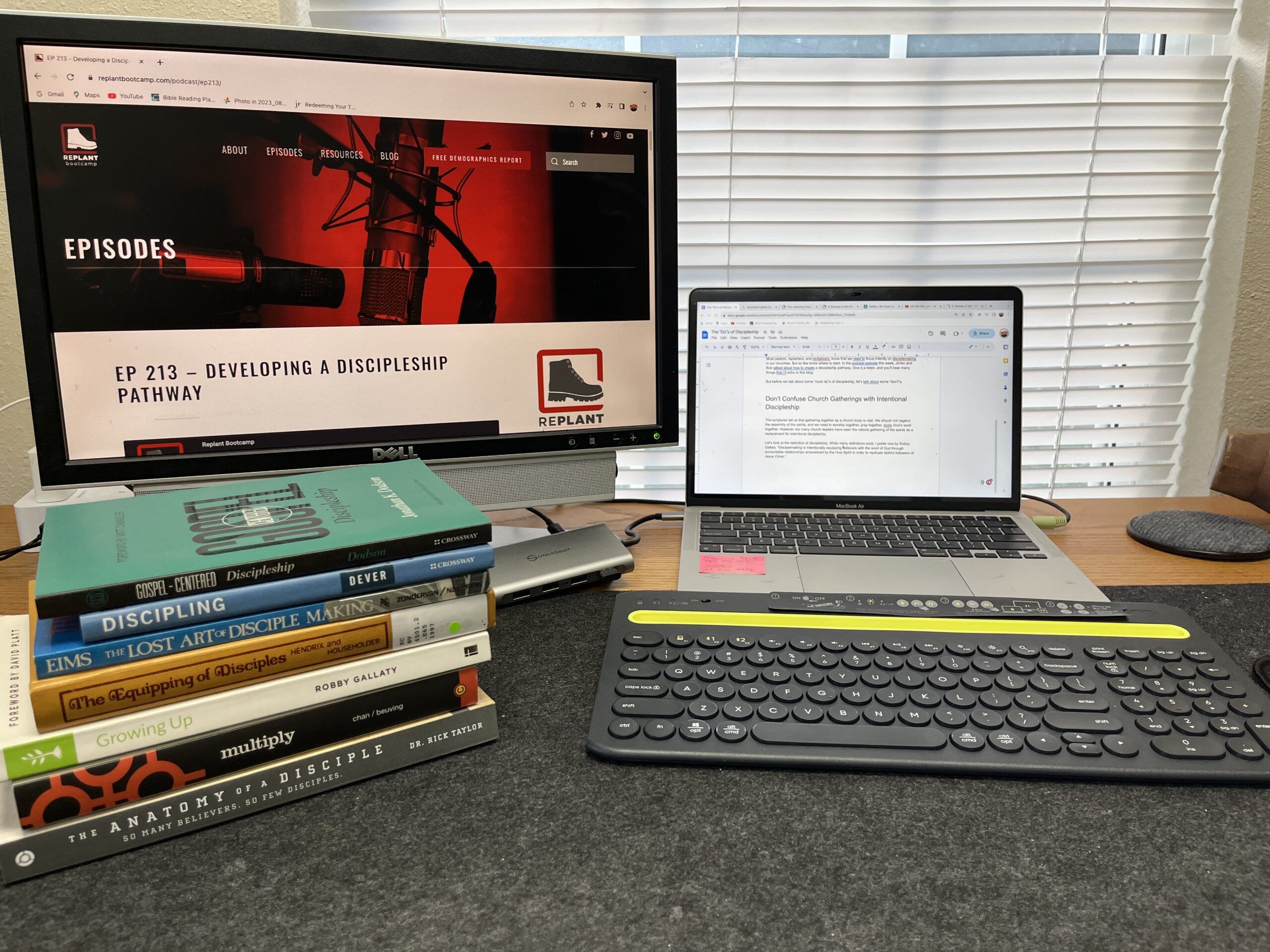Relational, Intentional Evangelism
Relational, Intentional Evangelism
Every Member on Mission
How active is your church in the work of Evangelism? In the work of Replanting and Revitalization, it can become quickly clear how active the church is in these areas. And, if you are working with a dying or declining church, odds are that they are not actively sharing the gospel with unbelievers, seeing baptisms, and discipling new believers. When bringing up those topics, some may say, “Well, maybe we need to bring back the ole’ Tuesday night visitations again.”
I recently heard a lecture from Mike Kahn, Associational Mission Strategist for the Tampa Bay Baptist Association. In a new Bible Study on Evangelism, Mike explains that the gospel never changes, but sometimes our delivery methods need to. In What If? Mike asks the simple question, “What If all Churches and all believers practiced relational evangelism?”
In the past, a church’s evangelism strategy might have centered on putting together a large event or hosting a tent revival meeting. Some might have an organized crusade event where large gatherings of people would come and hear the gospel. In the past 30 years, there has been a heavy emphasis on church evangelism programs. Normally, they take place on a specific night of the week where church members go out into the community and knock on doors, sharing the gospel using a number of tools.
I grew up learning the F.A.I.T.H. evangelism strategy and knew it like the back of my hand. I went out on Tuesday nights with my church family in groups of three and practiced sharing the gospel with people in their homes. There is certainly nothing wrong with any of these past evangelism practices. By all means, churches should engage with evangelism in a number of ways, including these outreach nights!
But we currently live in a different culture: a culture that is more antagonistic toward the gospel. People are more prone to shut the door, and reject the message you seek to convey. We live in a very consumerist society, and if what you’re offering doesn’t match the criteria for someone’s personal preference, they are less likely to give you the time to share. However, our culture still craves authentic relationships, and is still in desperate need of the gospel!
Personally, I can give you examples of people I have tried to share the gospel with in our community. Most people I have talked to seemed so surprised to engage in a spiritual conversation, much less talk about the central message of Christianity: the gospel. But the more we understand our culture, the more we must reevaluate the way we engage with the work of evangelism. What is the best and most effective way to share the gospel with people outside the faith?
Recapturing a Not-So-New Approach
In the recent podcast, Matt Queen shared that people are much more willing to hear the gospel than we are willing to share it. I completely agree with that statement, and can see it true in my own life. I have never had one person turn down the openness to hear the gospel. I’m not saying that they don’t exist, but I believe people are more respectful than we think.
 The type of evangelism that our churches need to recapture is not an old program that needs to be resurfaced. It was the method of evangelism that Jesus used: daily, relational evangelism for every believer, every follower. The way that Jesus encouraged his followers in evangelistic engagement was part of what it meant to be a follower of Christ.
The type of evangelism that our churches need to recapture is not an old program that needs to be resurfaced. It was the method of evangelism that Jesus used: daily, relational evangelism for every believer, every follower. The way that Jesus encouraged his followers in evangelistic engagement was part of what it meant to be a follower of Christ.
Jesus’ approach to evangelism was intentional, but at the same time realistic. It happened in the normal, every-day aspects of life. I think we can learn much by studying this in passages like John chapter 4, where Jesus has a casual conversation with the Samaritan woman that leads to the “living water.” We see Jesus regularly take authentic, contextual situations and turn them into gospel-sharing opportunities. In Luke 7, Jesus is blessed by a sinful woman that comes in the Pharisees’ home and asks for forgiveness. He uses a situation like this to explain the Kingdom to the Pharisee, while telling the sinful woman, “your sins are forgiven” (Luke 7:47-48).
We also see this intentionality in passages like Luke 10, where Jesus sends out people into towns and villages to prepare the way for the coming kingdom. When we read through the book of Acts, we see the same methodology used by the apostles and followers. They are both intentional and authentic in their approach, and they are always looking for opportunities to share the gospel with others. They are clearly led by the Spirit.
Passages like Acts chapter 8 are so incredible to see these followers intentionally going out, led by the Spirit, and having real conversations with people that lead them to Christ. What can we learn about this strategy? Preparing the way for the kingdom by sharing the gospel with others is something that takes every member on mission, working together.
Gospel Fluency
I haven’t had a chance to read Matt Queen’s book on Recapturing Evangelism but I can’t wait to check it out. Currently, my favorite book on this topic is by Jeff Vanderstelt, called Gospel Fluency. In the book, Vanderstelt makes the following statement:
“We need the gospel and we need to become gospel-fluent people. We need to know how to believe and speak the truth of the gospel –good news of God –in and into that everyday stuff of life. In other words, we need to know how to address the struggles of life in the everyday activities we engage in with what is true of Jesus: the truth of what he accomplished through his life death and resurrection, and as a result, what is true to us as we put our faith in him. The gospel has the power to affect everything in our lives.”
Vanderstelt is arguing one of the greatest motivations for evangelism. If we know and understand the gospel, it should motivate us to help others know and understand the gospel. That is, if the gospel has changed us, our desire is that it will change others. We are the vehicle God uses to accomplish his great kingdom work on earth. Therefore, we should seek with all vigor to make the gospel fluent in all our speech, so that it naturally flows out of us.
The best way for us to regularly share the gospel with others is by knowing the gospel fully and understanding it in our heart, and seeking out opportunities to make every day connections with those around us in our daily spheres of life.
Who are the Ministers?
When I do any evangelism training, I always like to start with a question: who are the ministers of this church? Most people point to their pastor or leaders, and very few church members point to themselves. I wonder why this is? Paul calls all followers of Jesus Christ “ministers of reconciliation.” In Ephesians 4:11-12, he says that God gave us leaders to equip the saints for the work of ministry. Every believer is called to be a “minister of reconciliation,” delivering the truth of the gospel everywhere we go.
Relational evangelism does not mean that gospel conversations cannot take place outside of a deep relationship with someone else. Evangelism can definitely happen in cold-turkey moments. It means that we are building gospel connections while we build relationships with others. While there are many “evangelism” passages, my personal favorite is In 2 Corinthians 5, where Paul shares about this “message of reconciliation” we have received and been entrusted with. This message is the gospel, and we will never share that which we do not know. Here are a few things that Paul teaches us about the gospel.
The Gospel changes the way we see people (2 Corinthians 5:16)
We tend to think of evangelism in terms of strategy and programs, but I honestly believe that Evangelistic living is a way of life. It has to do with the way we see people. In 2 Corinthians 5:16, Paul says, “From now on, therefore, we regard no one according to the flesh.” Paul was saying that they didn’t see people around them as flesh and bones! They saw them as people in need of the gospel of Jesus Christ.
 In his third missionary journey, when Paul wrote this letter, he was looking back on many years of serving the Lord and sharing the gospel with others. As he looks back, he says that there is not anyone that comes into their path that they saw as just a person. How do we see people? Do we see them as flesh and bones, or do we recognize that God has people in our lives for a reason? I wonder if our heart for evangelism would change if our view of people changed.
In his third missionary journey, when Paul wrote this letter, he was looking back on many years of serving the Lord and sharing the gospel with others. As he looks back, he says that there is not anyone that comes into their path that they saw as just a person. How do we see people? Do we see them as flesh and bones, or do we recognize that God has people in our lives for a reason? I wonder if our heart for evangelism would change if our view of people changed.
We tend to gravitate toward people who are similar to us, but the gospel places us all at level ground at the foot of the cross. God places people in our lives for a reason. And the beauty of the gospel is that it isn’t just for us, it’s for the world. This is the starting point for understanding evangelism. If we don’t see people as more than flesh and bones we will never share the gospel with them.
The Gospel transforms us (2 Corinthians 5:17-18a)
Paul helps us understand what the gospel does to our life. It makes us into new creations. God makes us into new creations through the transformation that the gospel brings. Verse 18 continues by saying that all this is from God. If you want to renew your heart and be transformed, you can’t do it by yourself. The gospel is initiated and carried out by God in the peoples’ lives. All this is from God – the one who saved us will continue to renew us by his grace each day.
This alleviates the stress of the evangelism response. When it comes to evangelism, I rest in the fact that whether or not a person responds positively is not on me. Their response is a work of the Spirit. Success is measured by whether or not we shared the gospel, not whether or not someone received it. Praise God, it is not dependent on us! When someone understands the gospel, the veil is removed. Who removed the veil? The Spirit of God (2 Cor. 3:18).
The Gospel is meant to be extended (2 Corinthians 5:18b-21).
Paul tells us here that God has committed to us the Word of reconciliation. That means that he has entrusted us with the gospel. The word in Greek is Themenos. God has appointed or assigned this gospel to us. He has placed it in our hands, so that we might serve it to others.
God has not only saved us so that we would be secure in Christ, he has saved us so that we might be sent into the world carrying the gospel of Jesus with us. Therefore, he calls us ambassadors. An ambassador is more than a representative. We carry a message with us on behalf of our great King.
The Gospel is urgent (2 Corinthians 6:1-2)
In these two verses, Paul continues the same line of thought. He tells the reader that today is the day of salvation. Paul wants his audience to know that they should not wait to commit their lives to Jesus Christ. Chapter 6 also warns us that we must not take the grace of God in vain. The grace of God was meant to be shared with others because grace received is always grace extended. He calls us a “fellow worker with God,” and we are. Working alongside him and seeking to accomplish the purpose bringing the message of salvation. We cannot wait for an acceptable time and wait for the right day, because none of us are promised tomorrow.
Our world is becoming increasingly darker, and the hope of the gospel is needed now more than ever. It really will take every member on mission working together to be a witness for Christ in every area of life.
While the list of resources on Evangelism are exhaustive, here are a few of my personal favorite. Gospel Fluency, Before You Share your Faith, Evangelism as Exiles, Evangelistic Living, and Turning Everyday Conversations into Gospel Conversations, and Life on Mission. Make sure to check out NAMB’s list of resources here to help you in this endeavor. If you’re interested in Matt Queen’s new book, check it out here. Lastly, I referenced Mike Kahn’s resource called What If?















